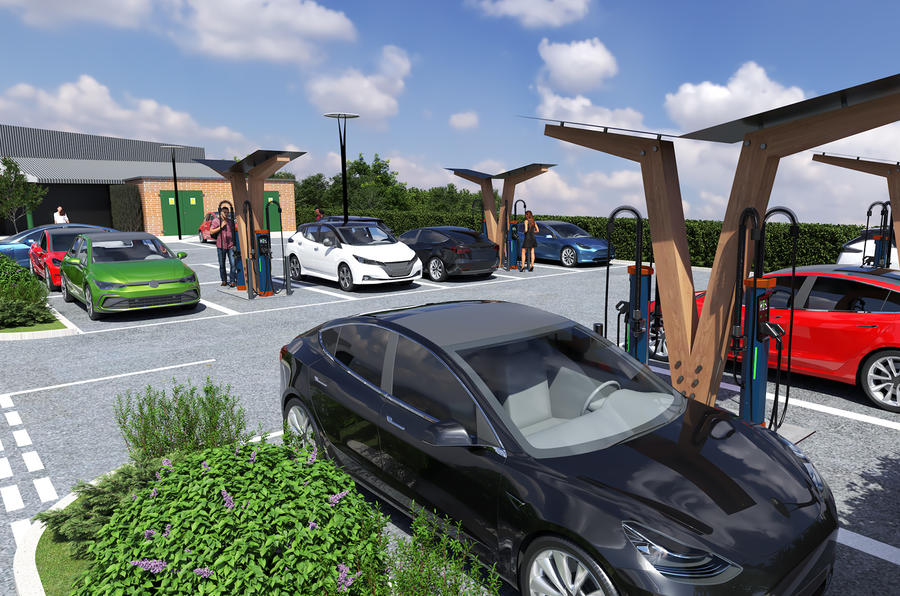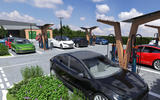A UK-based charging firm will invest £75 million into the country's electric charging infrastructure by opening 150 charging hubs over the next four years.
Osprey Charging aims to install a total of 1500 chargers nationwide. The units will charge at a 150-175kW rate and be positioned adjacent to A-roads and motorways.
The firm says each hub will make use of Kempower technology for the first time in the UK, allowing for improved power distribution when chargers are in demand. The chargers are also 74% smaller than usual, increasing accessibility.
The technology is said to optimise load-balancing, meaning a higher number of fast chargers can be installed per site with a higher average charging speed.
Ian Johnston, CEO of Osprey Charging, said: “The EV market is booming, with sales up over 117% year on year and EV adoption continuing to grow exponentially. In less than nine years’ time, buying a new petrol or diesel car will be impossible, so it’s crucial that public charging infrastructure stays ahead of the curve.”
Osprey hopes the charging hubs will help to “make charging anxiety a thing of the past” among potential EV drivers, prompt a growth in EV ownership and “herald a new era of public EV charging.”
“Our roll-out of hubs across the country’s major transport routes will ensure drivers are supported with convenient, reliable, on-the-go charging, delivering the best possible consumer experience for UK motorists,” Johnston said.
Construction for Osprey charging hubs has begun at four sites, with the first expected to open near Wolverhampton. Construction will start on 10 hubs before the end of the year, at Banbury (M40), Suffolk (A14), Essex (A127), Glasgow (M8), East Lothian (A1), Wolverhampton, (A4123), Birmingham (M6), Croydon (A23), Crewe (A534) and Brackley (A43).
Osprey also says each rapid charger is capable of adding 100 miles of range in 10 minutes, with no membership or subscription required. Charging hubs will also be positioned near food and drink amenities.
The firm’s investment follows announcements earlier this year of plans for other EV charging hubs, such as the Energy Superhub in Oxford, and companies such as BP and Audi hope to introduce their own sites in the future.
“The widespread transition to EVs means we need to rethink how we make, move and use energy,” said Graeme Cooper, the National Grid’s head of future markets. “The power demand for charging will be significant, so it’s crucial that we use the cleanest and cheapest power in our cars and make the most of each grid connection.










Join the debate
Add your comment
Good to see two of the planned sites will be in Scotland. All these new charging stations seems to be in the South East, which is frustrating
@superstevie - 2 in Scotland but all the rest in Midlands or below! Clearly the Osprey planners map has a large blank of area of the North of England labelled "Here be Dragons".
I love how the render has a model of fiat 500 that only comes as a mild hybrid plugged in and charging.
There is an electric Fiat 500 available now